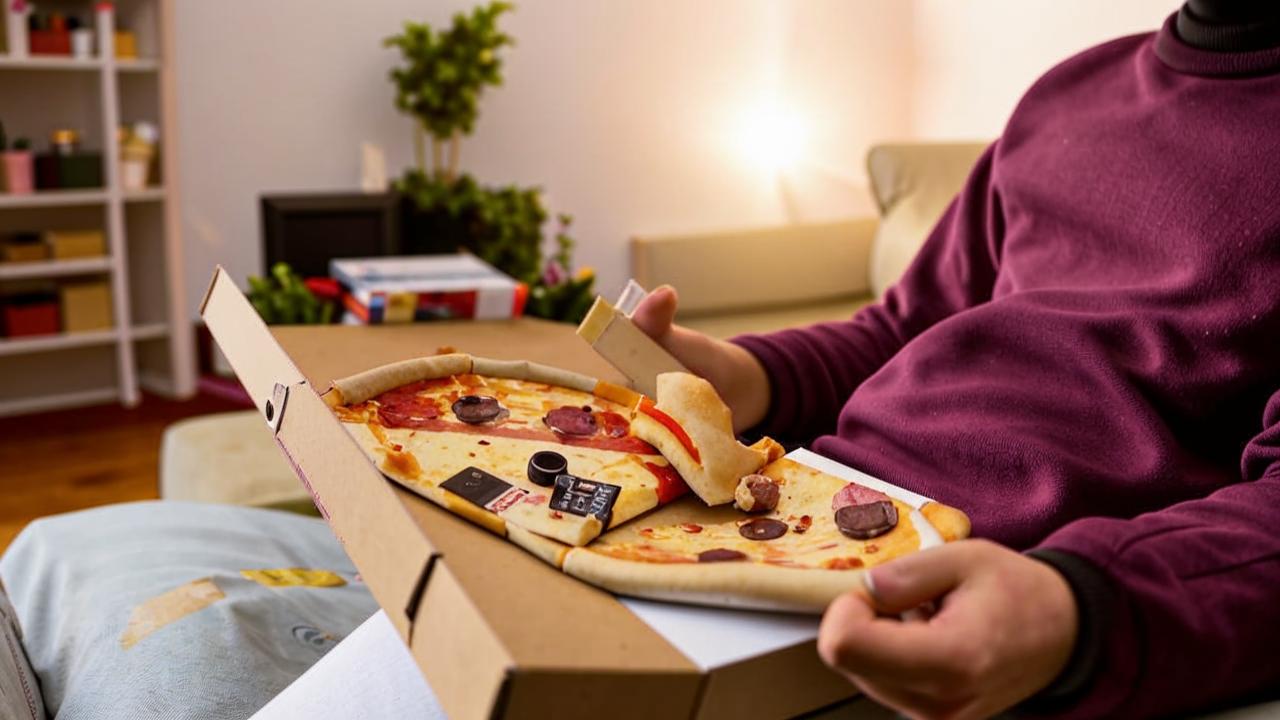They say you are what you eat. But it’s not only important to choose healthy food, but also to eat it right. When we’re calm, we eat to replenish our energy, but when we’re stressed, food is seen as a source of positive emotions. When we try to boost our mood with tasty but unhealthy food, we eat stress. It’s called emotional eating. Together with wellness coach and nutritionist Andrei Semeshov, we tell you why it is harmful and how to stop running to the fridge when nerves are strung out to the limit.
Why do we eat stress?
People eat for two reasons. The first is to satisfy hunger and maintain energy levels in the body. The second is to drown out stress and unpleasant emotions. And in the second case, we most often choose something sweet or fatty. However, after eating, the problems do not disappear, but the feeling of guilt for uncontrolled gluttony is added to them.

One of the main causes of emotional eating is hormones. When stressed, the body begins to produce cortisol, the so-called stress hormone. It sends a signal to the brain to mobilize – supposedly it is necessary to replenish energy to cope with life’s difficulties. That’s why instead of an apple or yogurt you want to eat something sweet, salty or fatty.
According to Andrei Semeshov, in many cases the habit of eating stress goes back to childhood: when as a reward for certain successes or to comfort us, we are offered something tasty. Thus, a certain pattern is formed: if something is upsetting, you need to reward yourself with a cookie or a chocolate bar.
Another common reason lies in physiological features, notes nutritiologist. The body’s reaction to stress is fairly standard – mobilization. For example, the blood supply is redistributed so that the blood drains from the digestive organs and flows to the muscles. When the brain believes that the body is in potential danger, we do not care about food – we need to save ourselves. In this case, starting to chew something intensely, we are trying to turn the physiological reaction in the opposite direction, to switch from the mode “we are in danger” to “everything is fine, we eat”.
It is quite easy to distinguish real hunger from the desire to eat stress. The first one develops gradually, you do not want something specific, but to eat in general. And after satiation, the brain gives the appropriate signal. While emotional hunger comes suddenly, you want only certain food – for example, your favorite burger or fries. But you are unlikely to feel pleasure and satiety.
In addition, worries negatively affect metabolism – they slow down metabolism, food is digested worse, and you gain extra pounds faster.
How to stop eating stress?
Recognizing the problem is the first step towards its solution. To begin with, you need to figure out what provokes uncontrolled absorption of food, and eliminate this factor, whether it is fatigue, loneliness, boredom or problems at work. For example, a walk or dancing will help to get rid of anxiety, a game with a pet or immersion in pleasant memories will help to get rid of a depressed mood, a hot bath and a cup of chamomile tea will relieve fatigue, and a good book or a favorite hobby will dispel boredom. There are also other tips that will help you cope with emotional eating.
Andrei: I advise my clients a banal technique – before gutting the fridge, go for a workout or just an hour walk around the house, in the park. Promising yourself that if the desire to eat everything that is not pinned down does not disappear, then immediately upon your return you will do just that. Practice shows that physical activity will allow you to effectively switch from the experience and the need to “eat stress” will disappear.
Do not run away from problems
Instead of eating up troubles, you need to get rid of them. You burn out at work, and coming home, fall off your feet from fatigue? Perhaps you should change such a job to a more relaxed? Constant scandals with a loved one? Then it is worth to understand the relationship and find a way out of the situation.
If the problem can not be eliminated, you need to develop a different attitude to it – to look for positive aspects or approach the situation with humor. The main thing – to act sensibly and judiciously, not to remain in the captivity of emotions.
Do sports
Physical activity raises the mood and gives a burst of energy, and therefore is an indispensable assistant in the fight against emotional tension. Not for nothing athletic and fit people are less susceptible to stress. Unfortunately, because of internal worries, many people find it hard to make themselves go to the gym or work out at home. But you can always find time and energy to take a walk in the evening or go dancing.

No less important is the mode of sleep. Without adequate rest, the body will try to replenish energy in other ways, and the easiest of them – the absorption of sweets. A healthy eight-hour sleep will help control your appetite and reduce unscheduled approaches to the refrigerator.
Get the bad stuff out of sight
It’s not easy to resist temptation when the fridge is full of sausage and fried potatoes, and the kitchen beckons chocolate and chips. To break the vicious circle “stress – food – stress” will be easier if you remove from your eyes all harmful food and replace it with something healthier – vegetables, fruits, honey.
Moreover, if you are nervous, shopping should be postponed. Otherwise, you’ll come home with bags full of buns and cookies.
No coffee and alcohol
Coffee and alcohol can only give you temporary comfort and a boost of energy. In fact, they will not help to cope with stress, and only more deplete the nervous system. It is better to drink water, fresh juices and herbal teas.
Do not forget to rest
Devote at least half an hour a day to relaxation. This can be meditation, breathing practices or a hot bath with candles. Such rest will help to unwind and relieve accumulated tension.

Do not go on a diet
Dieting is stressful in itself, so in difficult periods of life do not torture yourself with it. Eat right, but occasionally allow yourself something tasty. The main thing in this case – moderation.
Listen to yourself
Intuitive eating is a nutritional practice developed back in the 1990s. Try to listen to the signals that your body sends when you are hungry – this is a drop in energy, abundant salivation, headaches. Eat when you really want to eat, not out of sadness or boredom. And don’t just linger at the table – get up as soon as you feel satiated.





